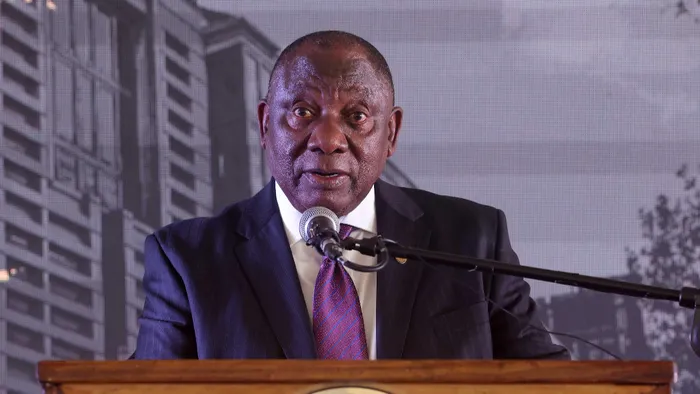Madlanga Commission opens in Pretoria, posing high stakes for Ramaphosa’s ANC

As the Madlanga Commission opens this week, all eyes turn to Pretoria, where formidable allegations of criminal infiltration and political meddling in the justice system will be explored, marking a significant chapter in the ANC’s fight against corruption.
Image: GCIS
South Africa is set to witness a Commission of Inquiry unlike any other, as the Madlanga Commission prepares to investigate explosive claims of political interference and criminal infiltration within the justice system.
The proceedings are scheduled to begin on September 17 at the Bridget Mabandla Justice College in Pretoria, a site transformed into a courtroom for what many are calling a pivotal moment in the country’s fight against corruption.
The commission, named after its chairperson, retired Constitutional Court Justice Mbuyiseli Madlanga, has been allocated a hefty budget of R147.9 million over a six-month period.
It was established by President Cyril Ramaphosa to delve into serious allegations regarding a sophisticated criminal syndicate allegedly embedded within law enforcement and intelligence structures.
At the forefront of this inquiry are the accusations made public by KwaZulu-Natal Police Commissioner Lieutenant-General Nhlanhla Mkhwanazi.
He is poised to be the first witness, testifying for five consecutive days on issues of political meddling, including alleged unlawful interference by former Police Minister Senzo Mchunu. Mkhwanazi claims Mchunu ordered the shutdown of the Political Killings Task Team, a move he sees as designed to obstruct crucial investigations into politically connected criminal networks.
The commission's legal team is led by Advocate Terry Motau and comprises a skilled group that includes Advocates Matthew Chaskalson, Mahlape Sello, and others, alongside commissioners such as Advocates Sesi Baloyi and Sandile Khumalo.
The commission's infrastructure is nearing completion, and public access to proceedings will be facilitated through streaming services, developed in collaboration with GCIS and private broadcasters. However, discussions involving classified information may be restricted from public view.
While the scope of the Madlanga Commission is vast, addressing not only criminal infiltration but also political interference within South Africa's criminal justice system, it has drawn mixed reactions from various sectors. Stefanie Fick, Executive Director of the Accountability Division at OUTA, has welcomed the inquiry. She stressed the necessity for the justice system to function equitably, noting that political interference breeds substantial corruption.
Yet, Fick remains apprehensive that the commission's findings lack enforceable power, fearing that the fate of its recommendations may mirror that of the Zondo Commission’s findings, which saw little to no implementation by the government.
Political analyst Zakhele Ndlovu expressed similar skepticism, remarking on the entrenched corruption and questioning the political will to enact real change. He fears that prominent political figures, including some who have since shifted to the MK Party, may be implicated, suggesting a potential reluctance for accountability within the ruling African National Congress (ANC).
Goodenough Mashego, another political analyst, starkly described commissions of inquiry as “funeral processions for the truth,” highlighting a troubling trend where inquiries in South Africa have often resulted in silence rather than accountability. He warned that the Madlanga Commission might simply serve to stifle dissent regarding Mkhwanazi's claims.
As the Madlanga Commission gears up for its ambitious undertaking, it remains to be seen whether it will uncover the layers of complicity within South Africa’s political and judicial systems and whether its findings will catalyse the crucial changes demanded by the South African populace.
hope.ntanzi@iol.co.za
IOL Politics
Get your news on the go. Download the latest IOL App for Android and IOS now
Related Topics: